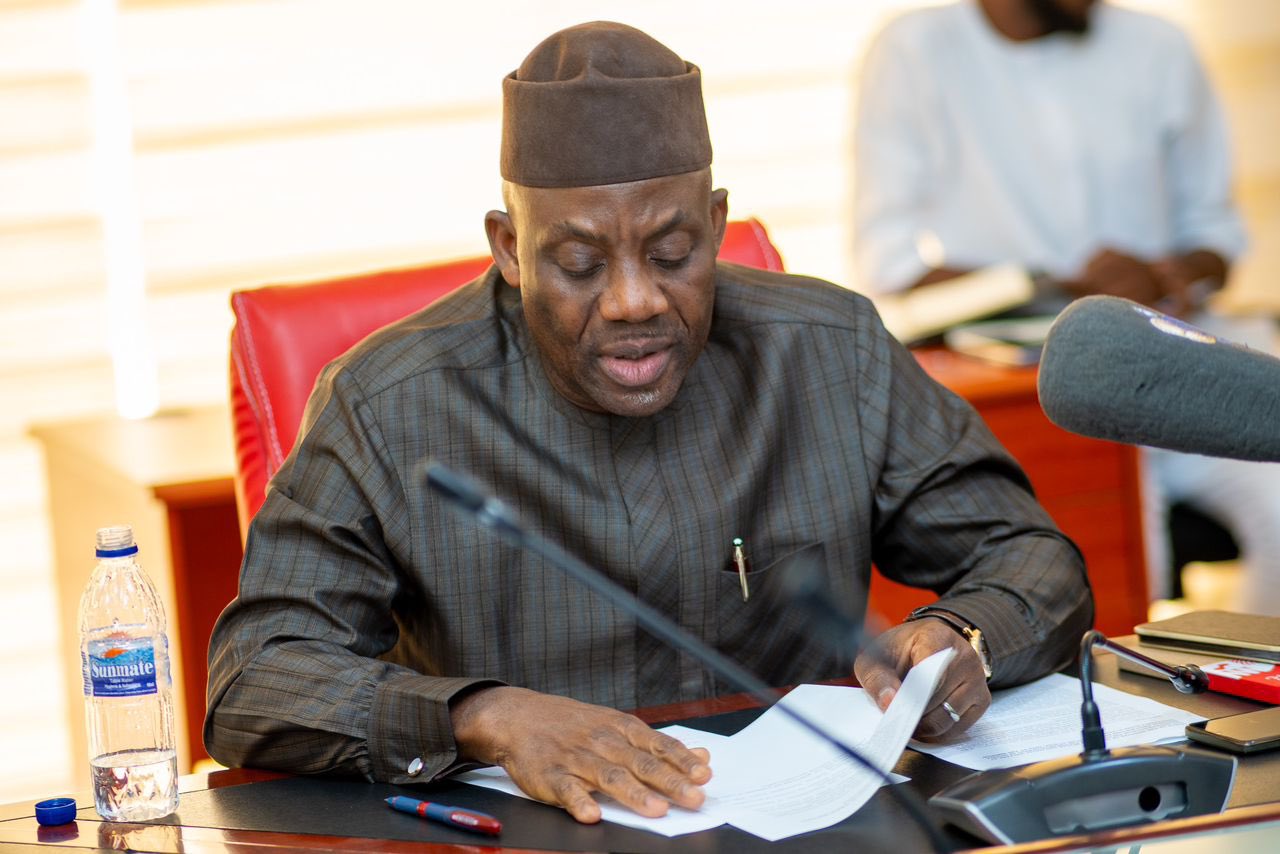

Dr. Tunji Alausa, the Minister of State for Health and Social Welfare, speaking at the inauguration of the Committee for the Development of the Nigeria National Prescription Policy
Abuja, Nigeria – The Federal Government has promised to do more to help girls go to school in Nigeria.
At the National Conference of Traditional and Religious Leaders on Girls’ Education, the Minister of Education, Dr. Tunji Alausa, said that traditional and religious leaders have a big role to play in making sure more girls get an education.
Dr. Alausa thanked the Governors of Kaduna, Bauchi, Niger, and Kebbi States for helping to organize smaller meetings before the main conference. He spoke about government programs like the National Education Sector Renewal Initiative (NESRI) and the Adolescent Girls Initiative for Learning and Empowerment (AGILE), which aim to reduce the number of girls who are not in school.
The Minister said that traditional rulers and religious leaders can help change how people think about girls’ education. Since they are respected in their communities, they can encourage parents to send their daughters to school and fight against old beliefs that stop girls from learning.
“You are the ones who connect the government with the people. Your voices can help remove the wrong ideas and cultural traditions that keep girls from going to school,” Dr. Alausa said.
He also asked them to talk to their communities, raise money for schools, and work closely with the government to make education easier for girls to access.
Dr. Tunji Alausa, Minister of Education
Dr. Alausa admitted that many girls still struggle to get an education because of poverty, child labor, early marriage, and cultural barriers. He said it is painful to see young girls selling goods on the streets or working as housemaids when they should be in school.
“When a girl is not educated, she is at risk of being taken advantage of, forced into child labor, or even harmed. Even though the government provides free education, many problems still stop girls from going to school,” he explained.
The Minister said that the government, religious leaders, traditional rulers, and the whole society must work together to solve these problems. He asked community leaders to talk to parents, run awareness programs, and encourage families to support girls’ education.
“Nigeria cannot grow if we do not educate our girls. We must all work together to change our communities and support education for all,” Dr. Alausa said.
At the end of the conference, everyone agreed to keep working with the government and do everything possible to make sure more girls go to school.
Dr. Alausa finished by saying, “Educating girls is not just about school—it is about giving them a better future. When we educate girls, we build a stronger Nigeria.”
With this strong message, the conference ended with leaders promising to take real action to help girls get the education they deserve.
Click Here For Video of The Week
M23 Rebels Secure Airport, Government Forces Struggle to Hold Bukavu The Congolese army and its…
Mike Bamiloye warns of spiritual dangers on Valentine’s Day. He fears young girls may fall…
Anambra suspends health worker for negligence. She refused to help a pregnant woman in distress.…